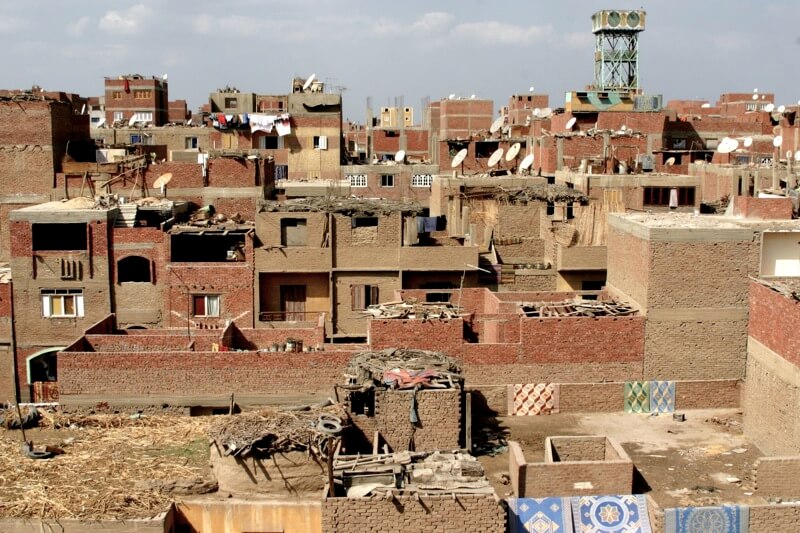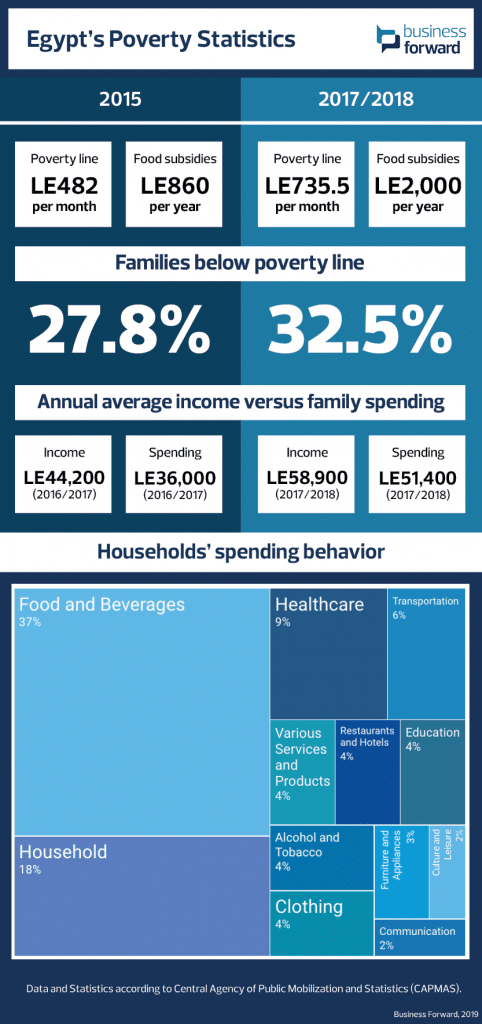Based on a survey of 26,000 Egyptian families, the Central Agency for Public Mobilization and Statistics (CAPMAS) announced that the country’s poverty rate had risen to 32.5% of the population – a 4.7% increase from 2015.
[Click on infograph to enlarge.]
But why the rise?
The infamous year 2016 has been marked with several economic revelations – Egypt’s economic reform program was picking up speed, an annually increasing value-added tax (VAT) was introduced, the Egyptian pound was devalued and subsidies for fuel and gas were cut. This caused inflation rates to soar.
“High inflation disproportionately hurts the poor and those living on fixed income, and complicate investment decisions,” a recent World Bank report explained. While social protection programs, such as Takaful and Karama, were stepped up to handle the impact of such decisions, “these mitigation measures remain limited, as the erosion of real incomes imposes a socioeconomic hardship and threatens the sustainability of the reforms,” the World Bank’s Egypt Economic Monitor July 2019 report further explains.
Over 88% of Egyptian households are currently relying on the government’s food subsidy cards, which offer an average of LE2,000 in price alleviations annually. Additionally, civil servants shall receive an increase in wages and pensions starting fiscal year 2020.
On the other side, the government is looking into amendments to the VAT Law and the Income Tax Law. While increases do not seem to be on the horizon, an expansion of taxpayers might be.










